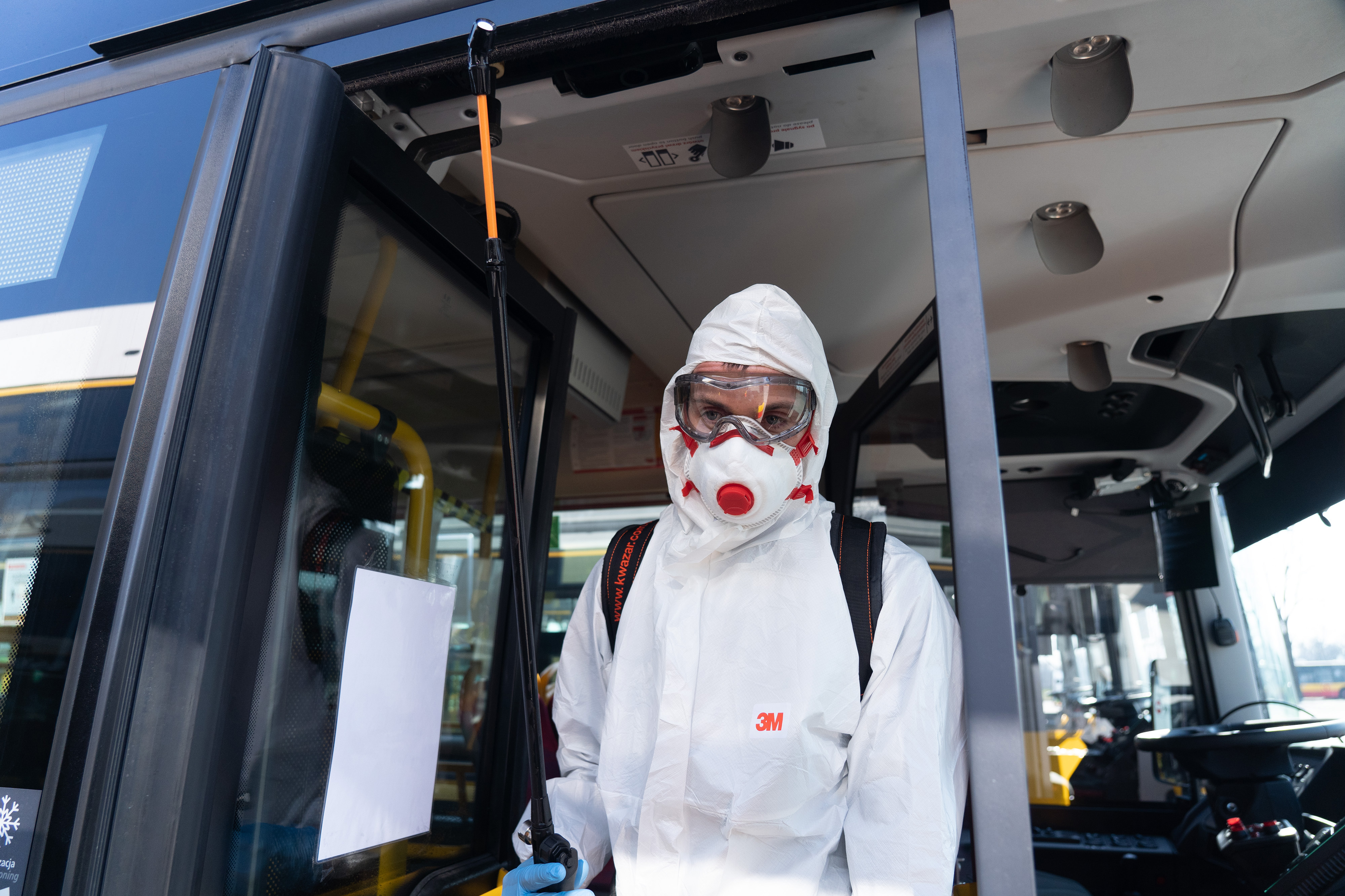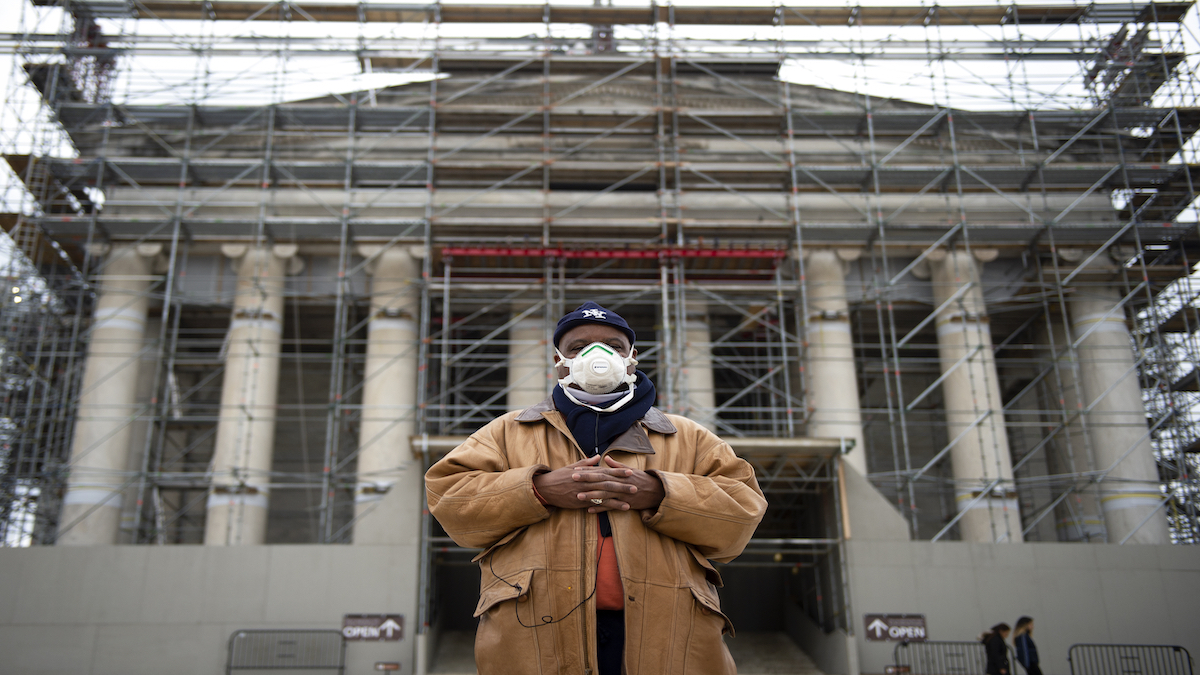Floridians trust the career bureaucrats working on the coronavirus pandemic more than any politician, according to a new online poll out of the University of North Florida.
Researchers with the University’s Public Opinion Research Lab asked nearly 3,200 people over the last five days about the current situation.
When Floridians do trust elected officials, it’s their local mayors and commissioners. For instance, President Donald Trump has a 45% approval rating according to the poll. Governor Ron DeSantis has a 51% approval rating.
CORONAVIRUS LATEST
Mayors across the state outperform the state and national leaders: Jacksonville Mayor Lenny Curry at 70%, Tampa Mayor Jane Castor at 78%, Orlando Mayor Buddy Dyer at 61%, and City of Miami Mayor Francis Suarez at 68%.
Florida Senators Marco Rubio and Rick Scott have low approval ratings, around 37-38%, but a high number of people selected “Don’t Know," meaning between 20-30% of Floridians don’t know enough about their performance to make an opinion.
University of North Florida pollster Mike Binder says people who make early, big decisions in a time of crisis usually get more support.
“That’s what we elect people to do. Right. Yes it’s great if they can make government work on a day-to-day basis but in crisis that we don’t see coming, how do you respond?" Binder said. "That’s really where political leaders have to stand up and in a lot of cases, a lot of locals have done that."
The well known faces of the crisis in Florida so far have been Trump, DeSantis, Director of the National Institute of Allergy and Infectious Diseases Anthony Fauci, and local mayors. Their political and public fate could hinge on how they respond in the next two months.
For where people are getting their reliable information - a new public official rock star might be emerging. Forty one percent of voters say they look to President Trump to give them reliable information, either a great deal or a fair amount. More people feel DeSantis is giving them reliable information than don’t. But most see mayors and commissioners as the most reliable.
More than 70% of people polled feel they’re getting reliable information from career professionals at organizations like the World Health Organization, the Centers for Disease Control and Prevention, and the Florida Department of Health.
“Even though we as a populace at least here in Florida might not have the most faith in some of the specific elected officials, there is an overwhelming faith the CDC and the doctors who are leading those organizations,” Binder said.
Out of all the press conferences and televised events during this crisis, Fauci has become one of the most well known and most trusted faces. Eighty-five percent of Floridians approve of the job he’s doing.
“Certainly people trust what he has to say and they approve of the job that he’s doing and I think that’s a positive thing for people to hang their hat on. There’s somebody certainly who’s on TV not every day but darn near everyday giving us some information that we believe,” Binder said.
One big takeaway is that Floridians trust career professionals more than elected leaders. Many believed their state and national leaders did not act big enough fast enough - most prominently displayed by DeSantis and Trump who for many are the face of the effort to combat the coronavirus. Local leaders fare a bit better.
Very few - single digits, according to the poll, believe their federal, state and local governments went too far. Their concerns about public health outweighed their concerns about the economy.
“There is a clear concern amongst Floridians that not enough is being done and that’s something in a public health crisis, if you’re going to make an error, you might want error on the side of public health. It appears that regular voters don’t think their governments are doing that,” Binder said.
The poll also shows the scope of how the virus is impacting Floridian’s everyday lives. Two out of every five people in Miami are in some sort of voluntary self-quarantine. Half of the population in the region work from home. More than half know someone or is someone who has been laid off or had their hours cut. It shows stakes that could lead to figurative pitchforks and torches to elected leaders or government officials who seem to be not up for the job.
The poll was entirely done online. Because of social distancing rules, the University of North Florida could not do the normal phone banking such a poll requires. Online polls often skew younger and wealthier. In order to contradict that, the pollsters triples the sample size. Public polls in Florida usually are around 700 to 1,000 people.



